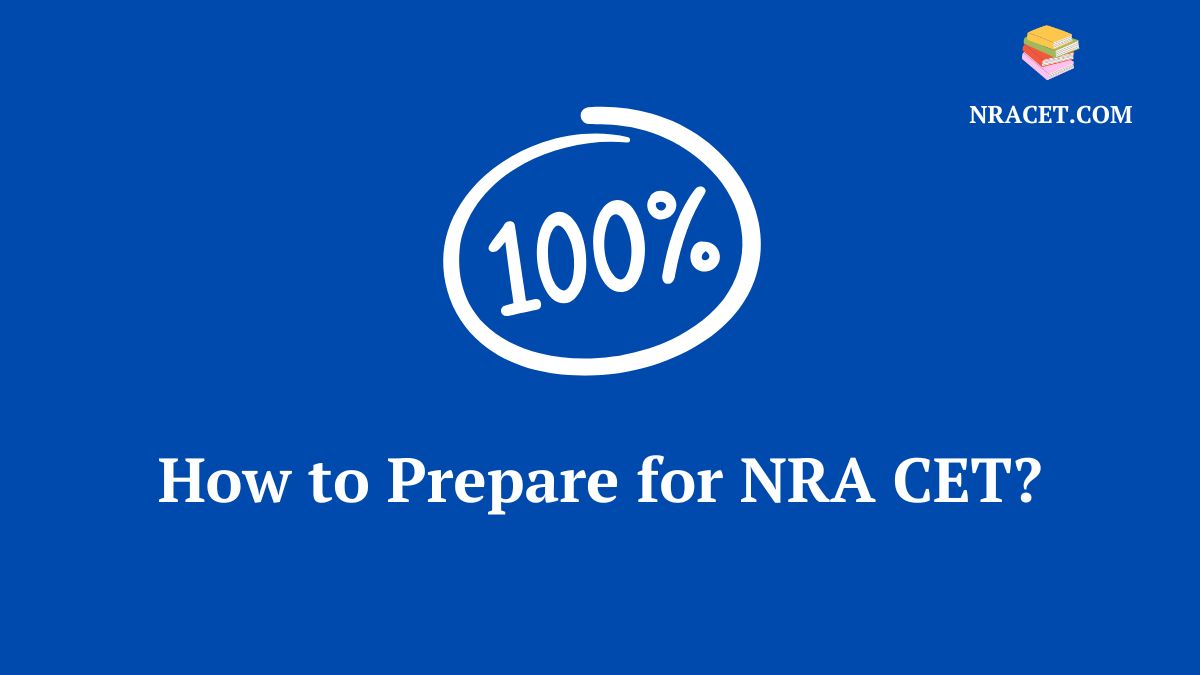The National Recruitment Agency (NRA) will conduct the Common Eligibility Test (CET) to streamline recruitment for SSC, IBPS (Banking), RRB (Railways), and other Group B & C exams. Although the CET was initially expected in 2024, recent updates suggest the exam might be conducted by late 2025 (Expected).
If you’re aspiring for government jobs, now is the best time to start your preparation early and gain a competitive edge. This guide will cover:
✅ Best Study Strategy for NRA CET
✅ Subject-wise Preparation Plan
✅ Books & Resources
✅ Mock Tests & Practice Strategy
✅ Time Management & Revision Tips
🔹 Understanding the NRA CET Syllabus & Exam Pattern (Expected)
Before diving into preparation, it’s crucial to understand the syllabus and pattern.
📌 Expected Exam Pattern:
✔ Single-tier MCQ-based online test
✔ Sections: General Intelligence & Reasoning, Quantitative Aptitude, English/Hindi, and General Awareness
✔ Difficulty Level: Based on 10th, 12th, or Graduation level (depending on the post)
✔ Negative Marking (Expected)
📌 Expected Syllabus:
| Subject | Topics Covered |
|---|---|
| Reasoning | Syllogism, Blood Relations, Coding-Decoding, Puzzles, Seating Arrangement, etc. |
| Quantitative Aptitude | Simplification, Number System, Profit-Loss, Data Interpretation, Algebra, etc. |
| English/Hindi | Reading Comprehension, Grammar, Cloze Test, Synonyms-Antonyms, Sentence Correction, etc. |
| General Awareness | Current Affairs, Static GK, History, Geography, Polity, Economy, Science & Tech |
🔹 Strategy: Instead of preparing for each exam separately (SSC, IBPS, Railways), focus on building strong conceptual clarity for NRA CET.
🔹 How to Prepare for NRA CET? Step-by-Step Guide
Step 1: Make a Realistic Study Plan
⏳ Study Hours:
✔ 4-5 hours for working professionals
✔ 6-8 hours for full-time aspirants
📅 Timetable Sample:
| Time | Activity |
|---|---|
| 6:00 AM – 7:00 AM | Current Affairs & Newspaper |
| 10:00 AM – 12:00 PM | Quantitative Aptitude Practice |
| 12:00 PM – 1:00 PM | Reasoning Section |
| 3:00 PM – 4:00 PM | English/Hindi Language |
| 4:30 PM – 5:30 PM | General Awareness |
| 6:00 PM – 7:00 PM | Mock Tests & Analysis |
💡 Pro Tip: Follow the 50-10 Rule → Study for 50 minutes, take a 10-minute break to maintain focus.
Step 2: Subject-wise Strategy
📘 Quantitative Aptitude (Maths)
✔ Start with Basics – NCERT books & R.S. Aggarwal
✔ Focus on Calculation Speed – Practice mental maths, short tricks, and Vedic maths
✔ Daily 15-20 Questions on Arithmetic, Algebra & Geometry
🔹 Best Books:
📖 RS Aggarwal – Quantitative Aptitude
📖 Fast Track Arithmetic by Rajesh Verma
🧠 Reasoning Ability
✔ Practice Puzzle-solving daily – Seating Arrangements, Syllogisms, Blood Relations
✔ Learn shortcut tricks for Coding-Decoding, Series, and Logical Reasoning
🔹 Best Books:
📖 A Modern Approach to Verbal & Non-Verbal Reasoning – RS Aggarwal
📖 English / Hindi Language
✔ Read Editorials (The Hindu / TOI) for Vocabulary & Comprehension
✔ Daily 10 Grammar Questions – Error Spotting, Sentence Improvement
✔ Improve Writing Skills – Practice Essay & Precis Writing
🔹 Best Books:
📖 Plinth to Paramount by Neetu Singh
📖 Word Power Made Easy – Norman Lewis
🌍 General Awareness (GA & Current Affairs)
✔ Daily 30 minutes for Current Affairs
✔ Follow Monthly Magazines like Pratiyogita Darpan, Manorama Yearbook
✔ Revise Static GK – Indian Polity, Geography, Economy, and History
🔹 Best Sources:
📖 Monthly Current Affairs PDFs
Step 3: Mock Tests, Previous Year Papers & Revision
✅ Solve at least 2 Mock Tests per week initially (Gradually increase to one per day)
✅ Analyze Weak Areas & Improve Time Management
✅ Use Previous Year Papers to understand difficulty levels
🔹 Best Platforms for Mock Tests:
📌 Testbook, Gradeup, Adda247, Oliveboard
Step 4: Time Management & Smart Study Techniques
✔ Follow the “2+1” Rule – 2 hours for learning new topics, 1 hour for revision
✔ Use Pomodoro Technique – 25 min study + 5 min break
✔ Focus on Accuracy – Since negative marking is expected, avoid guesswork
🔹 Common Mistakes to Avoid in NRA CET Preparation
🚨 Don’t Study Without a Plan – Random studying leads to zero retention
🚨 Ignoring Mock Tests – Exams are about time management, not just knowledge
🚨 Only Watching Videos Without Practice – Passive learning is ineffective
🚨 Not Revising Weekly – Memory retention drops without regular revision
🔹 Final 30-Day Revision Strategy for NRA CET
| Days | Focus Areas |
|---|---|
| Day 1-10 | Complete syllabus revision + Mock Test |
| Day 11-20 | Solve Previous Year Papers + Improve Weak Areas |
| Day 21-30 | Daily 2 Full-Length Mock Tests + Static GK & Current Affairs |
🔹 FAQs on NRA CET Preparation
Is NRA CET difficult?
It depends on your preparation. The syllabus is based on 10th, 12th, and graduation levels, making it manageable with the right strategy.
When should I start preparing?
Since NRA CET 2025 (Expected) is still being planned, starting early will give you an edge over other aspirants.
How to manage time if I’m working?
Follow a smart timetable, prioritize mock tests & focus on high-weightage topics.
🔹 Final Words: The Best Time to Start is NOW!
The NRA CET will change the recruitment process for SSC, Bank, Railways, and other exams. If you start preparing now, you will have an advantage over late starters.
🚀 Follow this study plan, stay consistent, and crack NRA CET with confidence!
🔹 Suggested Articles for You
👉 NRA CET Syllabus & Exam Pattern
👉 Eligibility Criteria for NRA CET
